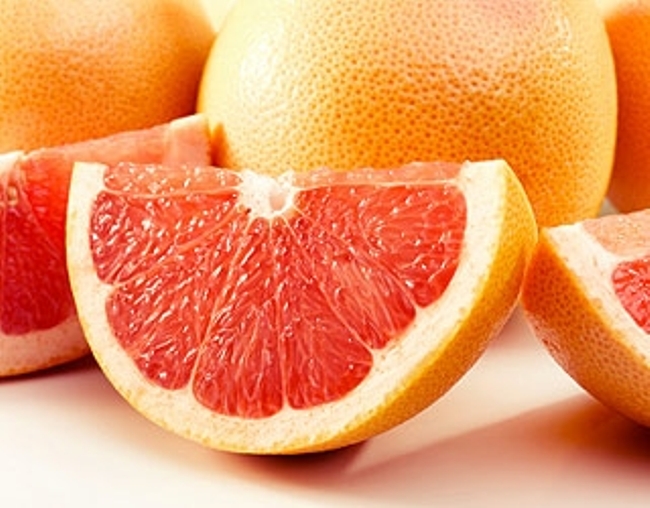Cancer is a dreadful disease, and in most cases doctors and the patient are aware of it when its at a very crucial stage. An anti-cancer diet is an important strategy you can use to reduce your risk of cancer. There are findings that certain foods may be particularly useful in protecting you from cancer. Make room in your diet for the following foods and drinks to fight cancer.
1. Grapefruit
Vitamin C — an antioxidant found in many fruits and vegetables such as grapefruit, oranges, bell peppers, and broccoli helps to prevent the formation of cancer causing nitrogen compounds. Diets high in vitamin C have been linked to a reduced risk of cancers of the stomach, colon, esophagus, bladder, breast, and cervix.
2. Peanuts And Peanut Butter
Vitamin E–rich diet reduces the risk of stomach, colon, lung, liver, and other cancers, but, as with other antioxidants, vitamin E supplements have largely struck out. Adding vitamin E–rich foods like peanuts, peanut butter, almonds, almond butter, and sunflower seeds to your diet will help keep your cells’ defenses strong.
3. Berries
Berries rank among the most likely to reduce cancer risk. Raspberries, blueberries, and cranberries in particular have shown very promising potential to help prevent cancer. An antioxidant called pterostilbene, found in high quantities in blueberries, has cancer-fighting properties and cranberries contain a whole drugstore’s worth of cancer-fighting natural chemicals.
4. Sweet Potatoes
Beta-carotene is a powerful antioxidant. People who eat a diet high in beta-carotene — found primarily in orange vegetables and leafy greens have a reduced risk of cancer, particularly of the lung, colon, and stomach. Among premenopausal women, one study found that eating a lot of vegetables that include beta-carotene, folate, vitamin C, and fiber – like sweet potatoes — reduced the risk of breast cancer by about half.
5. Salmon
Low vitamin D levels have been linked to several cancers, including colon and breast. Scientists theorize that vitamin D may help block the development of blood vessels that feed growing tumors and help stop the proliferation of cancerous and precancerous cells.
6. Ground Flaxseed
Omega-3 fatty acids may help prevent cancer by inhibiting cancer cell proliferation and disrupting steps that are critical to tumor growth. They also help reduce inflammation, which means they could theoretically reduce the possibility of cellular mutations.
7. Turmeric
Turmeric is the yellow-colored spice found in curry powder. Curcumin, the active ingredient in turmeric, functions as both an anti-inflammatory and an antioxidant, and it may help prevent cancer by interfering with aspects of cellular signaling.
8. Tea
Tea contains compounds called catechins, compounds that scientists theorize may help stop the growth of cancer cells and prevent cellular mutations that contribute to cancer development. In Japan, where tea is the preferred beverage, green tea consumption has been linked to reduced risk of stomach cancer among women.
9. Cruciferous Vegetables
All plant foods, grains, fruits, and vegetables contain small amounts of phytonutrients: naturally occurring chemical compounds that are just as important as vitamins and minerals are for maintaining health. Broccoli,cauliflower, and cabbage contain phytonutrients known as glucosinolates, which may help inhibit the metabolism of some carcinogens and stimulate the body’s production of detoxification enzymes.
10. Pomegranates
Pomegranates are chock full of ellagic acid — the latest phytonutrient to enter the scene (although it’s been quietly hanging out in berries, nuts, and pomegranates for millennia). To take advantage of these health properties, incorporate pomegranate seeds into smoothies or use them to top off a bowl of yogurt or cereal.










